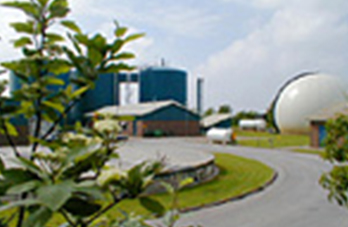
Biogas from agricultural waste, an approach for biogas production

Funding:
Collective Research-Project the 6th EU-Framework Programme
Project Duration:
01.06.2006 – 31.05.2009
Project Manager:
Dr. Gerhard Schories
Homepage:
Annually around 700 million tons of agricultural wastes are produced within the EU which represents a high load for farmers that are obligated to get rid of them. So far, the majority of the time manure and crop residues have been receiving the cheapest treatments although these are not the most adequate ones. Upgrading to biogas by means of anaerobic digestion (AD) represents an alternative treatment with a lot of potential as it not only prevents pollution, but also allows for energy and nutrient recovery.
There are still many challenges to be solved in order to make this technology effective to treat agricultural waste and widely accessible to European farmers. Its distribution is still scattered in the EU and farmers, depending on their location, have different opportunities to apply this technology. It is necessary to clarify which are the best conditions, adapted to local situations to treat the targeted residues and make this information accessible to farmers though the IAGs which represent them.
The possibility of co-digestion opens a door for plenty of potential to farmers who could be able to treat their own waste together with other organic substrates. By these means, farmers will treat their own residues properly and at the same time, they could make a profit by treating and managing organic waste from other sources (waste disposal and management fees) and by selling and/or using its outputs: heat and electrical power together with a stabilised biofertiliser.
The aim of the proposing IAGs is to gather and gain knowledge about financial, legal and technical requirements to develop feasible agricultural AD treatments for different local conditions to further transfer it to their SME members. This will strengthen the competitiveness of AD treatment of agriculture waste against other treatments and will ensure the compliance with the European and national environmental legislation.



